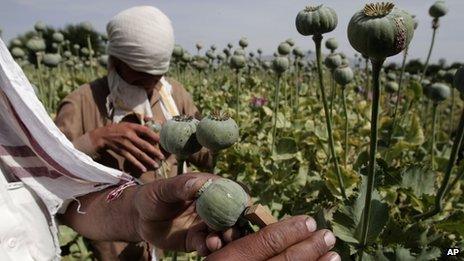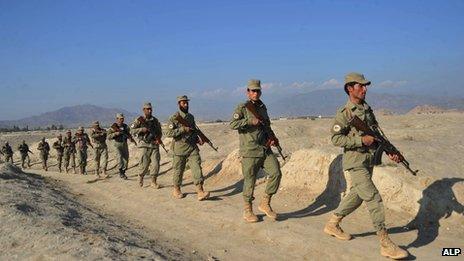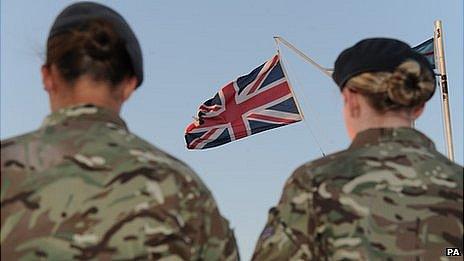What has the UK accomplished in Afghanistan?
- Published

The mission expanded to fight drugs and eradicate the opium poppy harvest
Using the phrase "mission accomplished" is something politicians are normally wary of.
This has been the case since George Bush declared America's mission in Iraq over, under a banner bearing those words, just before the killing there began in earnest.
So what was the UK's mission in Afghanistan?
In 2001, in response to the 9/11 attacks, it was to stop Afghanistan harbouring Osama bin Laden and Al Qaeda and any group that wished to attack the west.
Under that narrow definition of "security", the mission could be argued to have succeeded, although the threat itself has moved elsewhere, while Osama bin Laden was killed in his hideaway in Pakistan.
However, the mission in Afghanistan expanded to the fight against drugs and the attempt to eradicate the opium poppy harvest, which is now more productive than ever.
It also grew to encompass helping to liberate Afghan women, and achieve more equality across the south of the country by ensuring that girls, too, went to school.

Afghanistan's police (pictured) and army is bearing the brunt of the fight now
More children - both boys and girls - do indeed now go to school in Afghanistan. And for many, life and employment prospects have improved.
But the fight against the Taliban continues almost unabated, even as the west tries to encourage the Afghan government to hold meaningful peace talks with the insurgents.
We hear less about it because it is the Afghan police and army who are bearing the brunt of this fight now, while UK and American forces scale back.
Afghanistan itself is still riddled with corruption, inefficiency and divisions, while poverty is endemic and the drug dependent economy - or narco-economy - is now stronger than it was in 2001.
Fighting continues in many areas, even though the Afghan security forces are undoubtedly stronger than they were in 2001, and more capable.
But what happens after western forces leave is a question nobody, least of all in Afghanistan, can answer.

The government has promised to withdraw British combat troops in 2014
The country will hold a presidential election in April, and much will depend on that new government, and what legacy President Karzai leaves behind - and whether Afghanistan will sign a deal with US and other forces to help with security after 2014.
For the UK's part, the coalition government has sought to narrow the scale of its stated ambitions for Afghanistan as it promised to withdraw British combat troops by the end of 2014, along with the rest of NATO's remaining combat forces.
Mr Cameron may have veered off script on Monday evening by echoing the words "mission accomplished" while answering journalists' questions, but he was very clear that what happens next will be up to the Afghans themselves.